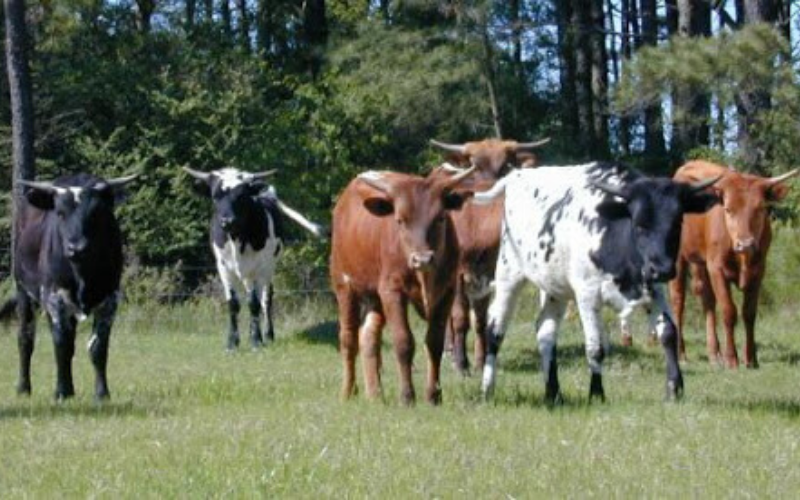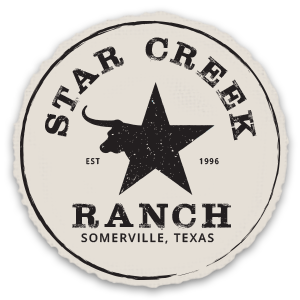
By: Darlene Aldridge
One of the most common questions I get asked by new breeders is about vaccinating their new herd members.
People make sizeable investments in purchasing Texas Longhorns and they naturally want them healthy when they go to their new home. It is always a good idea to know the vaccination practice of the ranch you buy from and the vaccination history of the cattle you buy.
If your animal is due for new vaccinations two months after you get it home, that is something you should know. I try to always make sure the cattle I sell have at least six months margin before their next vaccinations are due and sometimes, I will vaccinate cattle just before they leave Star Creek Ranch, so the new owner doesn’t have to worry about this right away. I also try to inform new owners of the vaccination history of their new cattle.
Always ask regardless of who you buy from. You may hear “We don’t vaccinate our adult cattle” or “We don’t feel vaccinations are necessary.” Beware.
Why Are Vaccinations Important in Adult Cattle?
The primary reason in cows is so she will have a good antibody titer in her colostrum to protect her new baby in the early days prior to that calf being able to build a defense for itself. Also, adult cattle can lose their immunity to disease over time and then if exposed, say to a new animal entering the ranch or even over the fence, she can become sick. Blackleg can strike a naive animal of any age.

One of the most important things a cow can do for her calf is to offer good immunity though her colostrum.
As the calf loses antibodies it acquired from the dam, it becomes susceptible to diseases. It is at that time that the calf can build immunity on its own from exposure to either the disease or vaccine. And we certainly want that exposure to be to a safe vaccine rather than to the disease.
My protocol is to vaccinate calves at around 3-4 months and again at weaning. They are vaccinated at a year of age then they move into the “adult” herd and are vaccinated annually as all adult cattle are. Because I have calves throughout the year, we generally work cattle several times in the year and vaccinate those that are due. If I can, I like to vaccinate pregnant cows in the two months prior to their calving date. This helps booster the quality of their colostrum and give that baby the best start it can have.

Heifers should be well immunized by weaning to get a good, healthy start on life.
All my heifer calves get a Brucellosis vaccination (commonly referred to as OCV – official calfhood vaccinate) between 4-12 months. This is a federally regulated program, so you will have to have your veterinarian do this vaccination for you.
Speak to Your Vet About a Vaccination Schedule
This will be an excellent time to speak to your veterinarian about a vaccination schedule for all your cattle. You may be buying your vaccine from your veterinarian, so it will be an excellent idea to have a good working relationship with him or her. You can learn the proper technique for caring for the vaccine, drawing it up and keeping it cold during the working day, giving injections both subcutaneous (under the skin) or intramuscular (in the muscle) depending on the type vaccine you are using. Remember: always read the directions that come with the vaccine and follow them closely. Not all vaccines are safe for use in pregnant cattle. Watch carefully for this.
Here’s hoping you have a healthy and happy herd that is disease free.
CONTACT STAR CREEK RANCH
